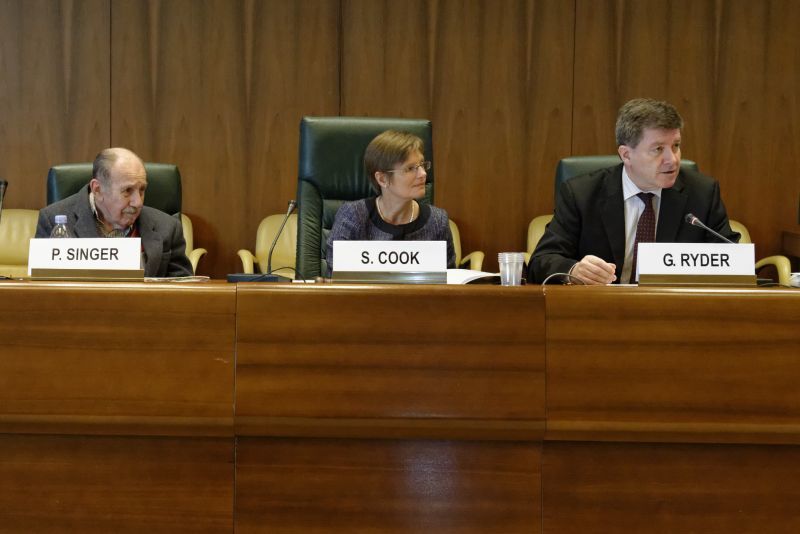
Co-operatives can make a positive change to the economy, according to the Director-General of the International Labour Organization, Guy Ryder.
In his opening speech at a conference organised by the ILO and the UN Research Institute for Social Development (UNRISD), Guy Ryder said that all social enterprises, including co-operatives, can help to address the economic crisis, youth unemployment, the informal economy and rural employment. Mr Ryder also said social economy can be an alternative to austerty measures, which he described as "risky".
The conference, entitled Potential and Limits of Social and Solidarity Economy, was aimed at assessing the role of the social and solidarity economy in overcoming today’s economic challenges. In terms of addressing the economic crisis, Mr Ryder said co-operatives have shown resilience to the crisis and added financial co-operatives have remained “far more sound than most of their sector”.
The ILO Director-General also said membership in co-operatives, as well as other social and solidarity economy enterprises, had increased. Mr Ryder added that the forthcoming International Conference of Labour Statisticians in October will look into the issue of statistics on co-operatives as a starting-point. He said the ILO is working in countries severely affected by the crisis, such as Greece, and focusing on enterprise restructuring through worker-owned co-operatives.
Mr Ryder said that in the context of the economic crisis, an enabling environment is critical for co-operatives and social economy enterprises. He argued co-operatives can also help to tackle youth unemployment, by providing jobs for young people or giving them the chance to start their own enterprise.
The ILO is leading a number of technical co-operation projects. In Kenya and Zimbabwe, a project on Youth Employment Support, Jobs for the Unemployed and Marginalized Young People, (YES-JUMP), supports entrepreneurship and co-operative development through vocational skills and business training.
Mr Ryder said YES-JUMP had developed a Challenge Fund which provided increased access to financial services for young people. He added that more than 1,500 young people had become members of such Youth Savings and Credit Co-operatives, which are managed by youth themselves.
According to the ILO Director-General, co-operatives play a particularly important role, particularly in rural areas, where people lack access to various services. “They are often instrumental in providing opportunities for productive employment as well as provision of health care, education, water, improved sanitation, roads and market access. Agricultural co-operatives can offer smallholders a wide range of services, such as improved access to markets, inputs, information, technologies, loans and other financial services, training and even to warehouses, thus contributing to poverty alleviation and food security,” he said.
The Director-General concluded by saying the ILO is ready to play a leading role in helping to achieve better strategies and interventions in the social and solidarity economy.
Photo: Paul Singer, National Secretary of Solidarity Economy for the Ministry of Labor and Employment of Brazil, Sarah Cook, Director, UNRISD, and ILO Director-General, Guy Ryder, at the conference in Geneva.




